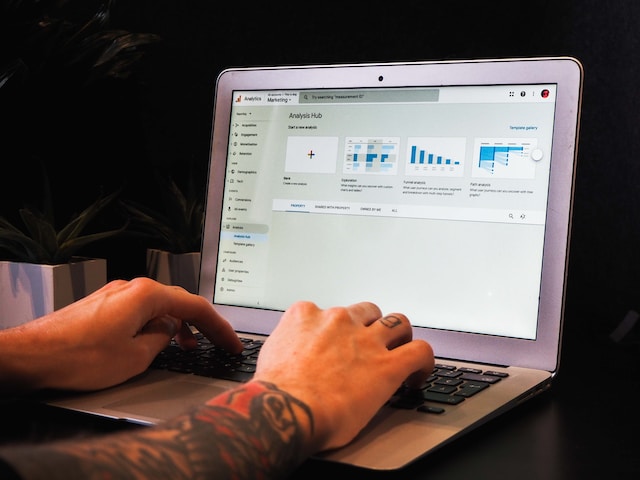Data Analyst vs. AI Scientist
Data Analyst vs AI Scientist: A Comprehensive Comparison

Table of contents
The fields of Data analysis and artificial intelligence (AI) are rapidly growing, and with them, the demand for skilled professionals. Two of the most popular roles in these fields are data analyst and AI scientist. While both roles deal with data, they have different responsibilities, required skills, and educational backgrounds. In this article, we will explore the differences between the two roles and provide practical tips for getting started in each career.
Definitions
A data analyst is a professional who collects, processes, and performs statistical analyses on data. They are responsible for identifying patterns and trends in data, as well as creating reports and visualizations to communicate their findings to stakeholders.
An AI scientist, on the other hand, is a professional who develops and applies Machine Learning algorithms to solve complex problems. They are responsible for designing, Testing, and implementing AI models that can learn from data and make predictions or decisions.
Responsibilities
The responsibilities of a data analyst include:
- Collecting and cleaning data from various sources
- Conducting statistical analyses to identify patterns and trends
- Creating reports and visualizations to communicate findings
- Collaborating with stakeholders to understand business requirements
- Identifying opportunities for process improvements
The responsibilities of an AI scientist include:
- Developing and testing Machine Learning algorithms
- Designing and implementing AI models
- Analyzing data to identify features and patterns
- Optimizing models for accuracy and efficiency
- Collaborating with stakeholders to understand business requirements
Required Skills
The skills required for a data analyst include:
- Proficiency in SQL and data manipulation
- Knowledge of statistical analysis and modeling
- Experience with Data visualization tools such as Tableau or Power BI
- Strong communication and collaboration skills
- Attention to detail and ability to work with large datasets
The skills required for an AI scientist include:
- Proficiency in programming languages such as Python or R
- Knowledge of machine learning algorithms and techniques
- Experience with Deep Learning frameworks such as TensorFlow or PyTorch
- Strong problem-solving and analytical skills
- Ability to work with large datasets and complex models
Educational Backgrounds
A data analyst typically holds a bachelor's degree in a field such as Statistics, Mathematics, or Computer Science. Some employers may also require a master's degree in a related field.
An AI scientist typically holds a master's or doctoral degree in computer science, mathematics, or a related field. They may also have experience in a specific industry, such as healthcare or Finance.
Tools and Software Used
Data analysts use a variety of tools and software, including:
- SQL databases such as MySQL or PostgreSQL
- Statistical analysis software such as R or SAS
- Data visualization tools such as Tableau or Power BI
- Microsoft Excel or Google Sheets
AI scientists use a variety of tools and software, including:
- Programming languages such as Python or R
- Deep Learning frameworks such as TensorFlow or PyTorch
- Cloud computing platforms such as AWS or Google Cloud
- Data visualization tools such as Matplotlib or Seaborn
Common Industries
Data analysts are in high demand across a variety of industries, including:
- Healthcare
- Finance
- Marketing
- Retail
- Technology
AI scientists are in high demand in industries that require complex problem-solving and Predictive modeling, including:
- Healthcare
- Finance
- Manufacturing
- Transportation
- Robotics
Outlooks
The outlook for both data analysts and AI scientists is positive, with strong job growth projected in the coming years. According to the Bureau of Labor Statistics, employment of data analysts is projected to grow 31% from 2019 to 2029, much faster than the average for all occupations. For AI scientists, the outlook is even more promising, with job growth projected to be 16% from 2020 to 2030, according to a report by the World Economic Forum.
Practical Tips for Getting Started
If you are interested in becoming a data analyst, here are some practical tips to get started:
- Learn SQL and data manipulation
- Gain experience with statistical analysis and modeling
- Practice creating reports and visualizations
- Build a portfolio of projects to showcase your skills
- Network with professionals in the industry
If you are interested in becoming an AI scientist, here are some practical tips to get started:
- Learn programming languages such as Python or R
- Gain experience with machine learning algorithms and deep learning frameworks
- Practice building and optimizing models
- Build a portfolio of projects to showcase your skills
- Network with professionals in the industry
Conclusion
Data analysts and AI scientists are both in high demand in today's job market, but they have different responsibilities, required skills, and educational backgrounds. By understanding the differences between the two roles, you can make an informed decision about which career path is right for you. Regardless of which path you choose, gaining experience and building a strong portfolio of projects is key to success in these fields.
Artificial Intelligence – Bioinformatic Expert
@ University of Texas Medical Branch | Galveston, TX
Full Time Senior-level / Expert USD 1111111K - 1111111KLead Developer (AI)
@ Cere Network | San Francisco, US
Full Time Senior-level / Expert USD 120K - 160KResearch Engineer
@ Allora Labs | Remote
Full Time Senior-level / Expert USD 160K - 180KEcosystem Manager
@ Allora Labs | Remote
Full Time Senior-level / Expert USD 100K - 120KFounding AI Engineer, Agents
@ Occam AI | New York
Full Time Senior-level / Expert USD 100K - 180KAI Engineer Intern, Agents
@ Occam AI | US
Internship Entry-level / Junior USD 60K - 96K